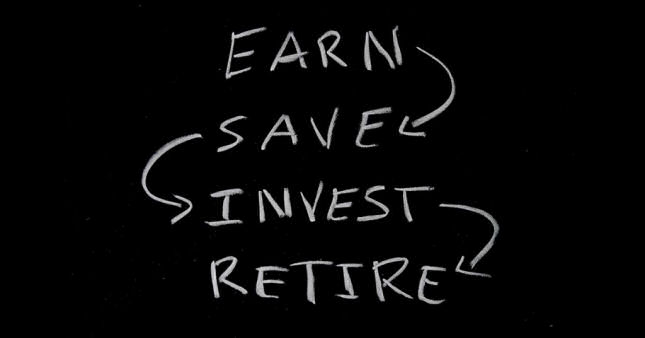CD vs. IRA and CD vs. Money Market
How do you decide between a CD vs. an IRA and a CD vs. a money market account?
When you are doing investment planning it is worth weighing the many different opportunities. A CD versus an IRA is an option you may want to look at. Most people are familiar with the generally conservative and safe Certificates of Deposit (CDs). These certificates are savings accounts where your money is held for a time period of a few months up to a number of years.
An Individual Retirement Arrangement (IRA) is a commonly held retirement account that can hold a wide variety of investments. A CD is one of those investments may be held inside or outside of an IRA.
Another savings comparison to look at is a CD vs. a Money Market Account (MMA). A MMA is a type of deposit account that is offered by many financial institutions. Contrary to certificates, money market accounts have greater liquidity and allow you to write checks from the balance. Similar to CDs, these accounts also have higher interest rates when compared to traditional checking or savings accounts.
In the U.S., 12 percent of investors reported in 2018 that they had money for retirement saved in CDs while 33 percent reported that they had money in traditional IRAs. When specifically looking at short-term returns, only 6 percent of the people who were surveyed reported that they are earning more than 2 percent annual percentage yield on their short-term savings.

How does a CD work?
Financial institutions, such as banks and credit unions, offer CDs to customers. These certificates are a secure, low-risk type of investment. Each certificate has a CD rate attached to it, which represents the set interest rate on. It is important to keep in mind that a certificate of deposit will have a maturity date. When you purchase one, you agree to hold your money in the account for a specific length of time. It is only at its maturity date that you can withdraw your money together with the interest it has accrued.
A CD can be flexible in that you are able to purchase it in different amounts. They offer higher interest rates when compared to traditional savings accounts, but also have limitations. CD are less liquid and have withdrawal consequences. If you withdraw your money from a CD before it reaches its maturity, you will be penalized a fee.
A certificate of deposit, or time deposit, is not a liquid investment with the exception of a liquid CD. You are not able to write checks against it, and if you withdraw your money early, you will pay a penalty determined by the financial institution. The return on CDs is guaranteed, and the interest rates are higher than other alternatives. CDs have minimum deposits that range from $1 to $2,500 with term lengths ranging from three months to five years making it attractive to a variety of investors.
A liquid CD is a type of account that allows you to access some of the funds. These CDs generally pay interest rates that are slightly higher than money market funds and less than traditional time deposits. However, they have minimum balance requirements and you are limited to a certain number of withdrawals.
Certificates of deposit have an array of options. There are different amounts and risks associated with the various types. While many choose the standard CD, it is worth becoming familiar with the other opportunities available in the event that you want to expand your CD portfolio.
Bump-up CDs start off with a lower interest rate than a regular CD. This type of certificate, also known as a step-up CD, allows you change to a higher rate, if offered by the bank. This option is risky because the rates have to increase in order to make it worthwhile, but if rates stay the same or decrease it becomes a weaker option than the regular CD.
Brokered CDs are certificates that are sold by brokerage firms. You are able to buy these CDs, which are issued from various banks, and hold them in one account. Brokered CDs have no withdrawal penalty and can be sold on the secondary market. The risk of rising rates makes this a risky option. It is best to buy from reputable sources and know that these CDs do not allow you to reinvest dividends.
For those looking to invest a large amount of money, a jumbo CDs is an option. These CDs have high minimum balance requirements, usually in excess of $100,000. It is FDIC insured, though only up to $250,000. This investment generally has a higher interest rate which tends to provide a higher rate of return.
To maximize your returns on certificates, consider laddering your certificates of deposit. A CD ladder is when you purchase several CDs with varying maturity dates. Certificates with longer maturity dates generally pay higher rates of interest. When you ladder CDs, you can withdraw money from shorter-term CDs and reinvest them so that you can access your money while also enjoying higher interest returns.
What is an IRA?
An IRA is an individual retirement account. This long-term account allows you to make your contributions on a pre-tax basis. In doing this, you can claim deductions on your taxes for the contributions that you make during the tax year.
There are several incentives of an IRA which make it a reason for its popularity. Tax-deferred growth of your contributions and multiple investment options make this a good opportunity for a range of investors. If you are looking for tax-free growth of your investment, you may want to expand your search into Roth IRAs as well.

There are regulations to be aware of when considering an IRA. Regulated maximum contributions bar large deposits. Contributions to a traditional IRA are limited to $6,000 per year if you are younger than 50 or $7,000 per year if you are older than age 50. Required distributions start at age 70 ½ which will be included in your taxable income.
Early withdrawal penalties discourage you from taking from this account. There are exceptions, however, that do allow withdrawals in limited circumstances. If you make a withdrawal from your IRA before you reach age 59 1/2, it will be included in your taxable income and you will have to pay an additional 10 percent tax penalty of that distribution amount. There are certain hardship exceptions to the penalty, including first-time homebuyer deposits, becoming disabled and qualified higher education expenses.
Money market accounts explained
A money market account is a type of savings account that allows you more immediate access to your money through checks and debit cards that are associated with it. Federal rules limit transactions from these accounts and are closely regulated to six per month including checks, debit card transactions, electronic transfers and withdrawals. Money markets may have high minimum deposit requirements and charge monthly fees. Fees will also be of importance if you have a number of monthly transactions that exceed the federal limitations.
While these accounts pay higher interest than traditional savings accounts, they also tend to have minimum opening deposits that are significantly higher. Some MMAs have opening minimum balance requirements that range from $1,000 up to $10,000. However, it is possible to find a money market account with a low minimum deposit by searching online.
Money market accounts offer low-risk accounts that are secured by the FDIC, which insures your deposit up to $250,000. The opportunity for higher interest returns than a regular savings account coupled with liquidity, makes it an attractive choice.
Why compare a CD vs. a money market account and a CD vs. an IRA?
It is important to compare a CD against other options in order to maximize the returns that you can earn on your investments. When you choose investments that match your needs, your money can work harder for you. Another consideration to take into account is your individual time horizon of your overall financial goal.
For short-term investments, it is a good idea to compare a CD vs. a money market account so that you can pick the option that best suits your financial plan. Certificates are generally considered to be conservative, low-risk investments that might make them an option if you are nearing your retirement age.
In general, a CD might pay slightly higher interest rates than a variable return money market account. When you compare a money market vs. a CD, MMAs earn a lower yield than CDs. According to the FDIC, the average annual percentage yield for a money market was 0.18% as of March 2019.
When looking overall at a money market account vs. a CD, MMAs might be a better choice if you want to be able to have immediate access to your money with check-writing and debit card privileges. With a CD, you will not have access to your money until a certificate of deposit matures.
The ability to create a CD ladder can help you to have better access to your money while also maximizing the interest rates that you receive. Since CDs with longer terms pay higher interest rates, a CD ladder can help you to earn the highest rates available.
For example, if you create a CD ladder by purchasing a one-year CD, a two-year CD, a three-year CD, and a four-year CD, you can invest the money from your one-year CD into a new four-year CD. You will then have each of the CDs in your CD ladder maturing every year, allowing you to reinvest the money into new four-year CDs so that you can maximize your returns.
One of the main differences between a CD vs. an IRA is the investment timeframe. A CD is a short-term investment option while an IRA is considered a long-term retirement savings vehicle. Where a CD is a low-risk investment that can be purchased in different amounts and term lengths, an IRA is a tax-advantaged account that allows your savings to grow tax-deferred until after you retire. If retirement is your focus, you may want to hold CDs inside of your IRA or outside of it.

CDs vs. savings accounts
A savings account is an FDIC insured account that is held at a bank. The returns that you earn in a savings account are variable. For this reason, you will have to research online in order to find a high-yield savings account. This type of account has minimum deposit requirements. While account holders are allotted six monthly convenience withdrawals, traditional savings accounts do not allow you to write checks or provide you with a debit card.
There are some advantages of a high-yield savings account:
- Higher interest rates than traditional savings accounts
- Easily transfer money between the online savings account and your bank
- FDIC insured
- More liquidity than a CD
There are also some limitations of a high-yield savings account vs. a CD:
- Lower interest rates than CDs
- Transfers to your bank may take several days
- Cannot withdraw money at an ATM
Comparing a CD vs. a savings account reveals a couple of key differences. A CD may offer higher interest rates than a savings account however, you will not have access to your money until the CD matures. If you withdraw money that you have in your CD early, you will pay large penalties. A savings account pays lower interest rates but allows you to make up to six withdrawals per month.
CD vs. bonds
A bond is a certificate which represents that a municipality or corporation is indebted to you. If you own a bond, the debtor municipality, governmental body, or corporation will have to repay you the principal and interest when the bond matures. It is considered to be a low-risk investment.
Bonds are typically sold in $1,000 increments. If you sell a bond early, you will only get the price that is available on the market. You can purchase bonds through a broker, directly from the government, or through an ETF. It is important for you to consider the bond rating before you invest in a bond.
When you compare a CD vs. a bond, there are several things to consider. In general, both CDs and bonds are deemed as having ratings that are safer than stocks or mutual funds. However, these two investment products have some key differences.
CDs represent deposits that are held at banks. These deposits at banks are FDIC insured up to $250,000. Bonds are debt securities and are not FDIC insured. Treasury bonds may offer income stability together with liquidity yet may have lower returns than CDs.
CDs rise when interest rates go up. By contrast, bonds go down when interest rates increase. Because of the inverse relationship that bonds have with rising interest rates, it is possible to lose value in your bond investments during times when interest rates increase. Long-term bonds suffer more when interest rates fluctuate.
When comparing a CD vs. a bond both are relatively safe investment choices. Bonds that have longer maturities are more sensitive to increases in the interest rates. If your portfolio is made up of bonds with long maturity dates, your CDs may outpace them in terms of earnings.

Comparison of CDs, IRAs, savings accounts, money markets and bonds
Trying to choose between the various types of savings and investment options requires research and comparisons. As you become more familiar with financial investments, you might want to look toward other options rather than CDs. When determining your financial goals and objectives, you have to think about which investment is right for your individual needs, risk tolerance and time frame.
An IRA is a long-term savings vehicle that can contain many different types of retirement investments. Money market accounts are just one of the types of low-risk options that you can hold in your IRA. MMAs offer the same liquidity as a traditional savings account and tend to earn a higher yield return which might be a better place to hold your emergency savings. Where money market funds may pay interest rates that are higher than traditional savings accounts, they tend to be slightly lower than CD rates.
While bonds and CDs are relatively safe, they may not provide you with the types of returns that you are looking for in the long-term. The best investment for you is the one that matches your financial plan. A diverse portfolio with a long-term view needs to be revisited and managed annually.
M1 Finance empowers you to manage your money and build wealth
M1 Finance is an investment platform that allows a high degree of personalization combined with accessibility and trading innovation expertise. You are able to customize your portfolio according to your needs or select from almost 100 different portfolios that have been created by experts for different financial goals, time horizons, and risk tolerance levels.
The platform was created in a way to make investing accessible for everyone ranging from beginning to advanced investors. You are able to benefit from powerful automation for contributions and investments along with dynamic rebalancing and optimization so that your money continues to work hard for you.
M1 Finance’s no fee investing
M1 Finance offers cutting-edge investment advice and strategies to help investors to meet their financial goals. The platform allows you to automatically reinvest your earnings in such a way to maximize your earnings.
Investing with M1 Finance is free. The platform does not charge any commissions or management fees, which allows your money to grow even faster.
